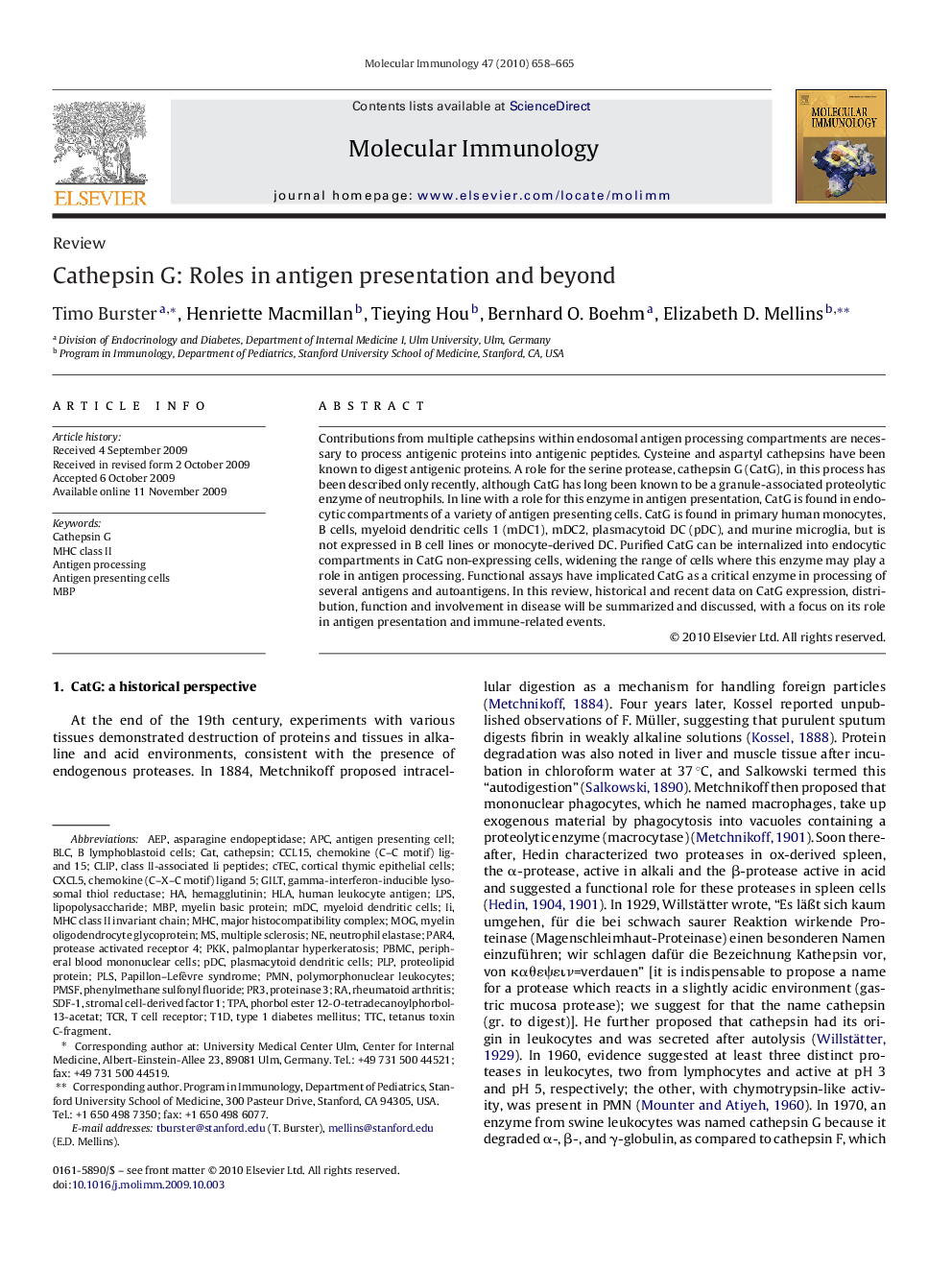| Article ID | Journal | Published Year | Pages | File Type |
|---|---|---|---|---|
| 2831809 | Molecular Immunology | 2010 | 8 Pages |
Abstract
Contributions from multiple cathepsins within endosomal antigen processing compartments are necessary to process antigenic proteins into antigenic peptides. Cysteine and aspartyl cathepsins have been known to digest antigenic proteins. A role for the serine protease, cathepsin G (CatG), in this process has been described only recently, although CatG has long been known to be a granule-associated proteolytic enzyme of neutrophils. In line with a role for this enzyme in antigen presentation, CatG is found in endocytic compartments of a variety of antigen presenting cells. CatG is found in primary human monocytes, B cells, myeloid dendritic cells 1 (mDC1), mDC2, plasmacytoid DC (pDC), and murine microglia, but is not expressed in B cell lines or monocyte-derived DC. Purified CatG can be internalized into endocytic compartments in CatG non-expressing cells, widening the range of cells where this enzyme may play a role in antigen processing. Functional assays have implicated CatG as a critical enzyme in processing of several antigens and autoantigens. In this review, historical and recent data on CatG expression, distribution, function and involvement in disease will be summarized and discussed, with a focus on its role in antigen presentation and immune-related events.
Keywords
SDF-1T1DCXCL5PMNPLPBLCMDCPR3PMSFAPCGILTgamma-interferon-inducible lysosomal thiol reductaseTTCPKKTCrAEPcTECLPSPapillon–Lefèvre syndromePBMCMOGPLSPalmoplantar hyperkeratosisCATPAR4MBPPDCtPAMHC class IIProteolipid proteinRheumatoid arthritisHuman leukocyte antigenAntigen presenting cellsHLAneutrophil elastasetype 1 diabetes mellitusperipheral blood mononuclear cellscortical thymic epithelial cellsplasmacytoid dendritic cellsmyeloid dendritic cellsantigen presenting cellstromal cell-derived factor 1phenylmethane sulfonyl fluoridepolymorphonuclear leukocyteslipopolysaccharidemajor histocompatibility complexMHCMultiple sclerosishemagglutininAntigen processingMyelin basic proteinproteinase 3cathepsin GCathepsinClipmyelin oligodendrocyte glycoproteinT cell receptor
Related Topics
Life Sciences
Biochemistry, Genetics and Molecular Biology
Molecular Biology
Authors
Timo Burster, Henriette Macmillan, Tieying Hou, Bernhard O. Boehm, Elizabeth D. Mellins,
